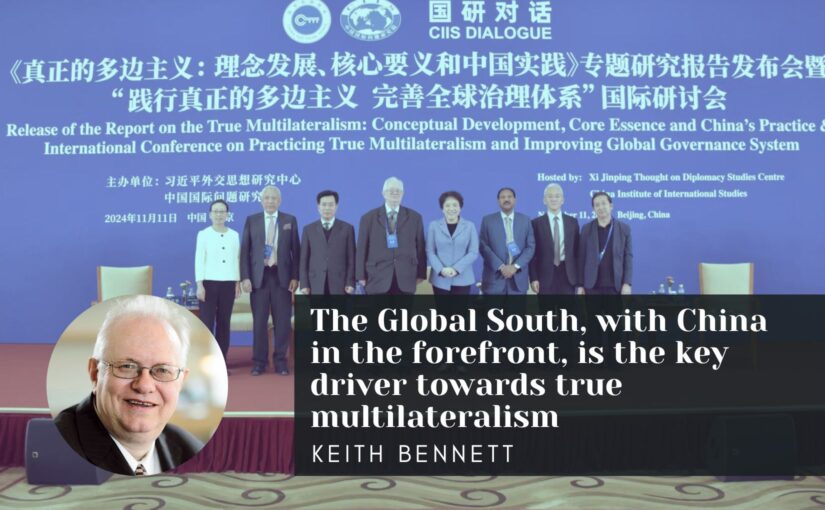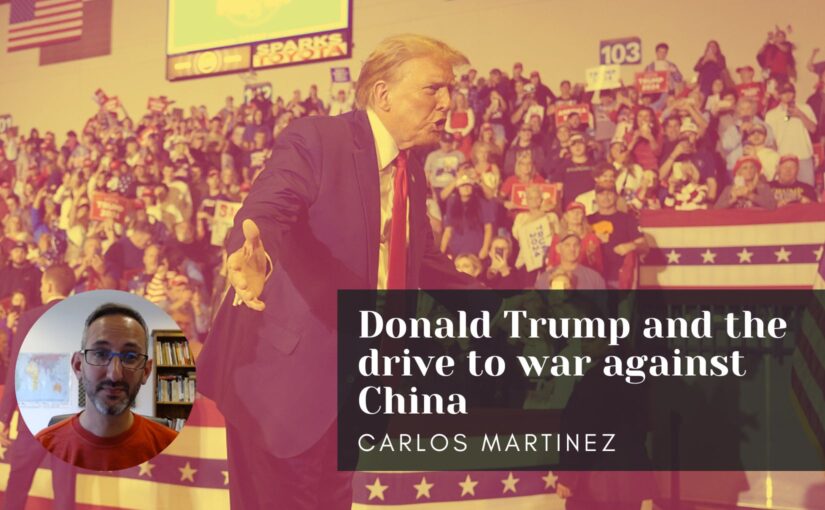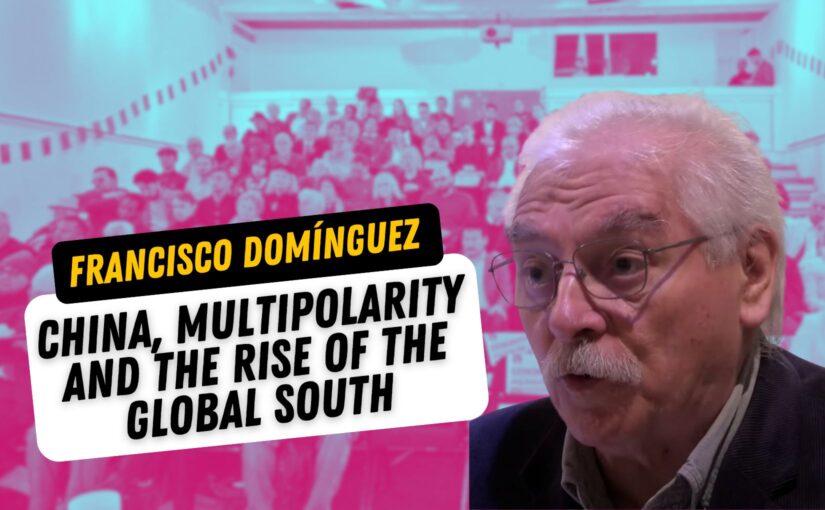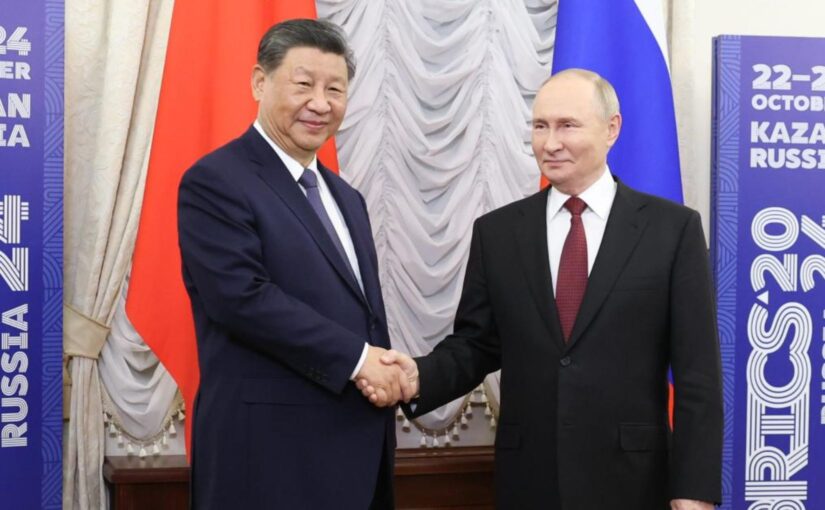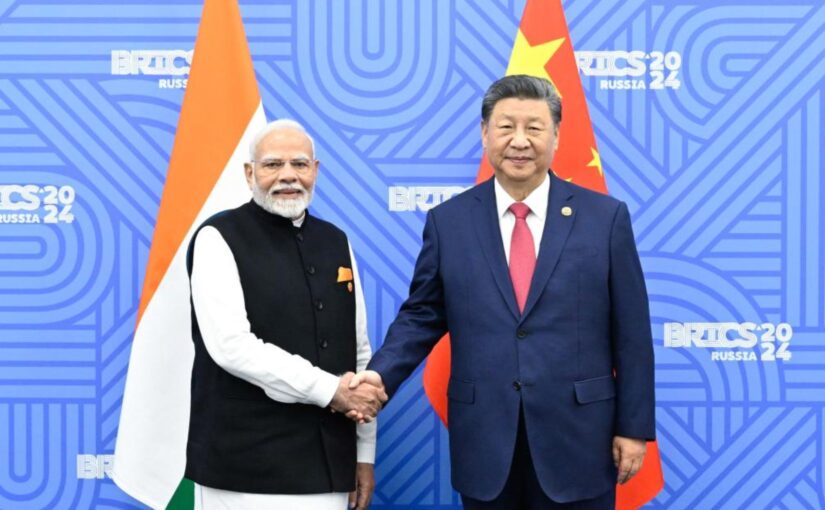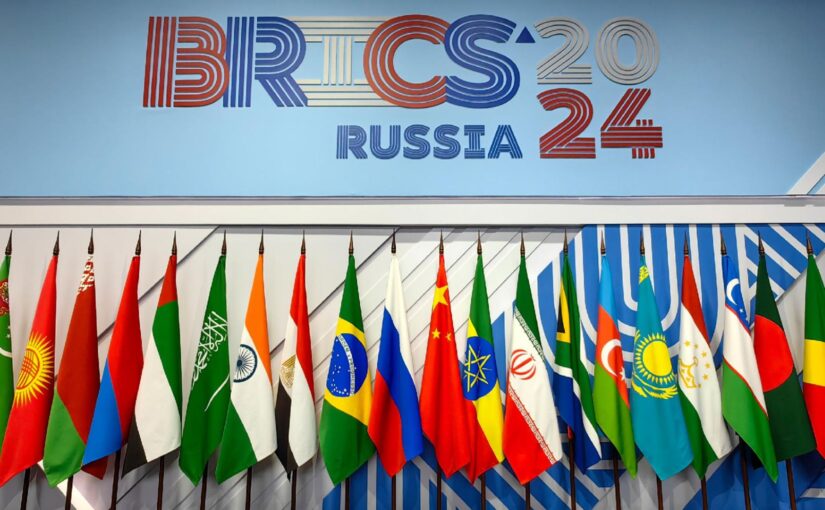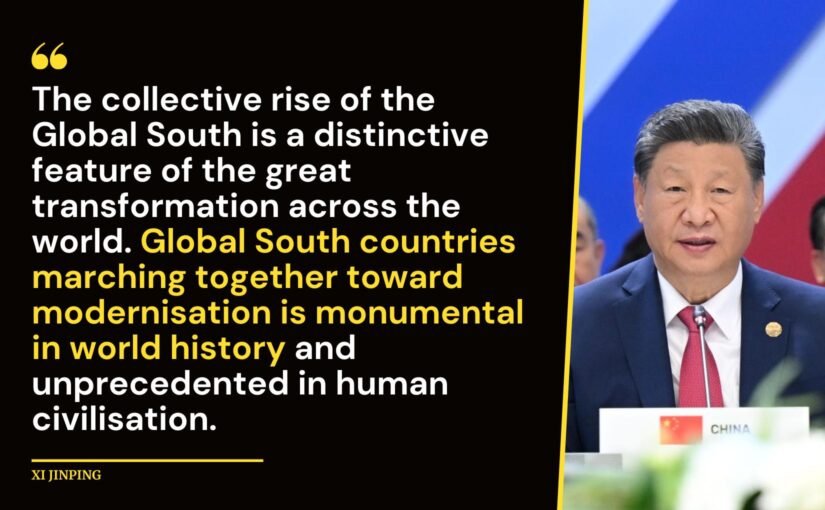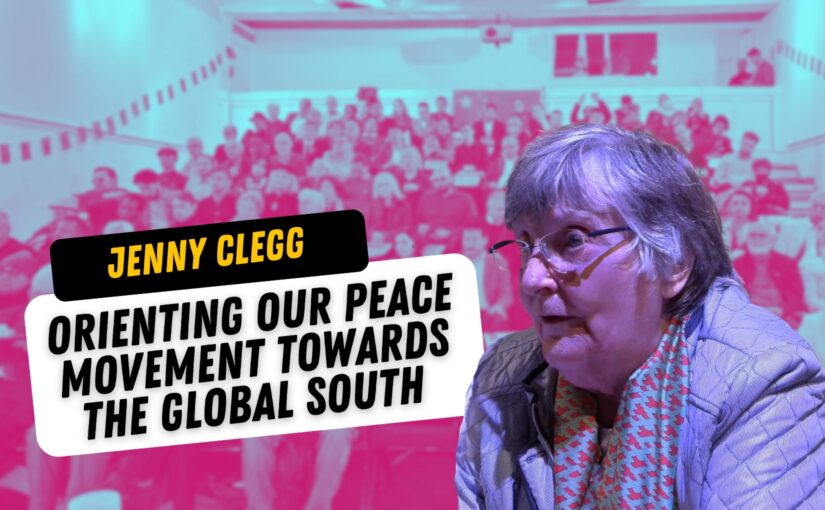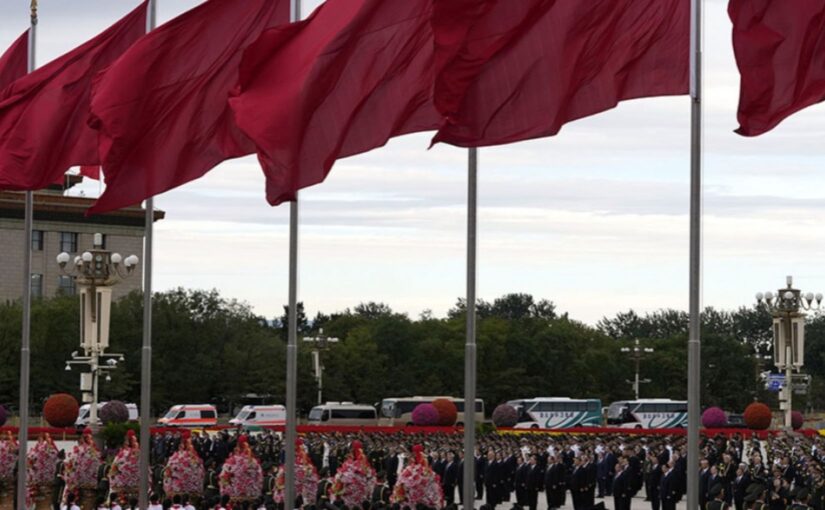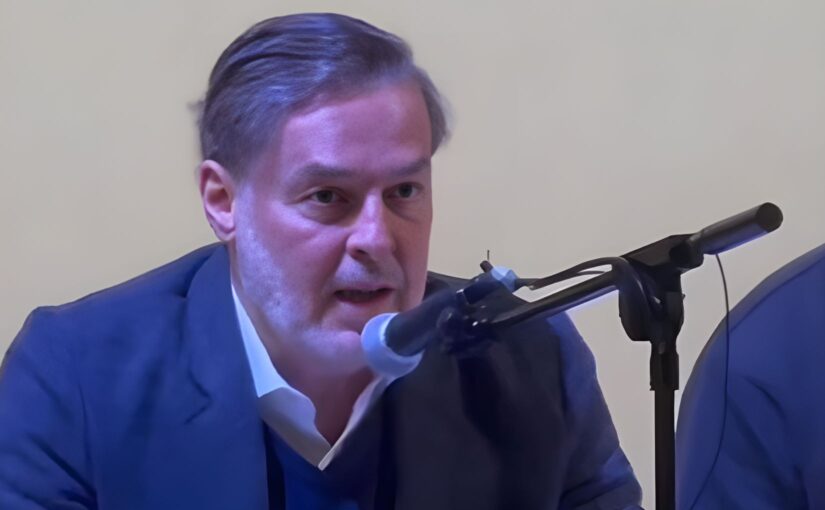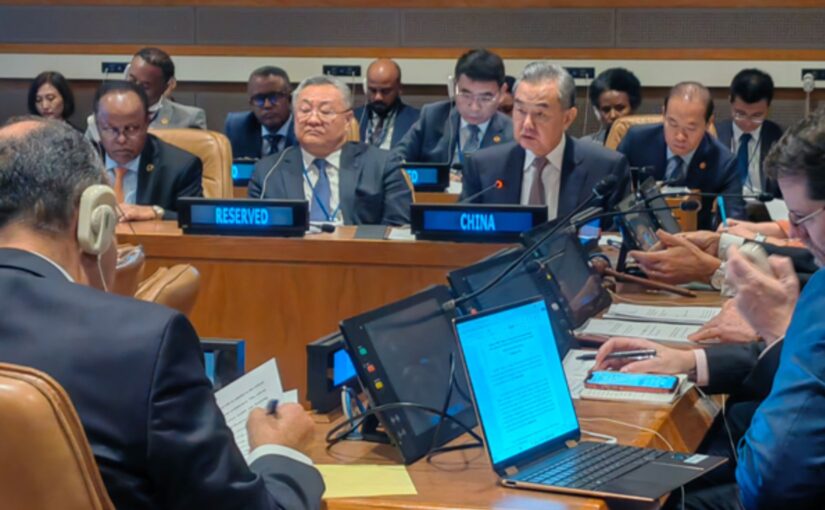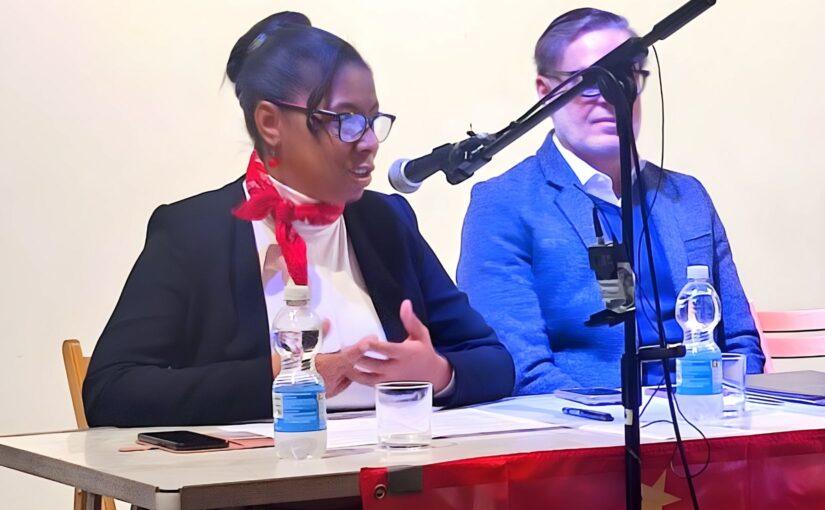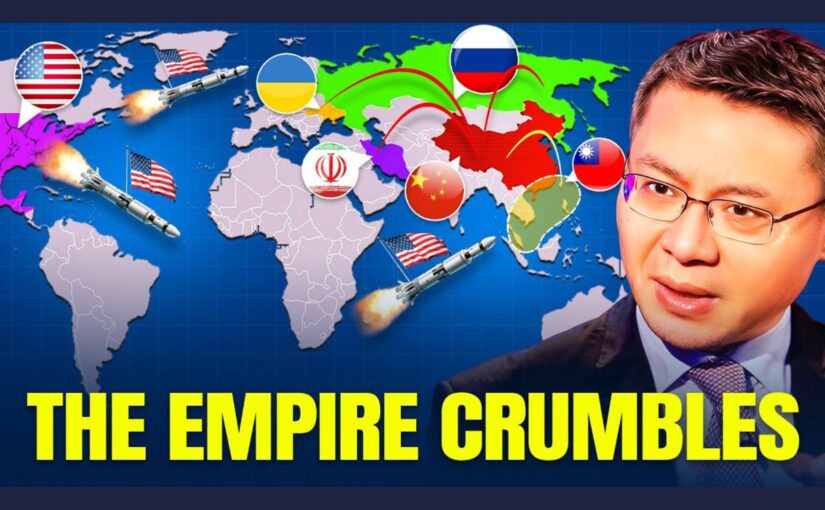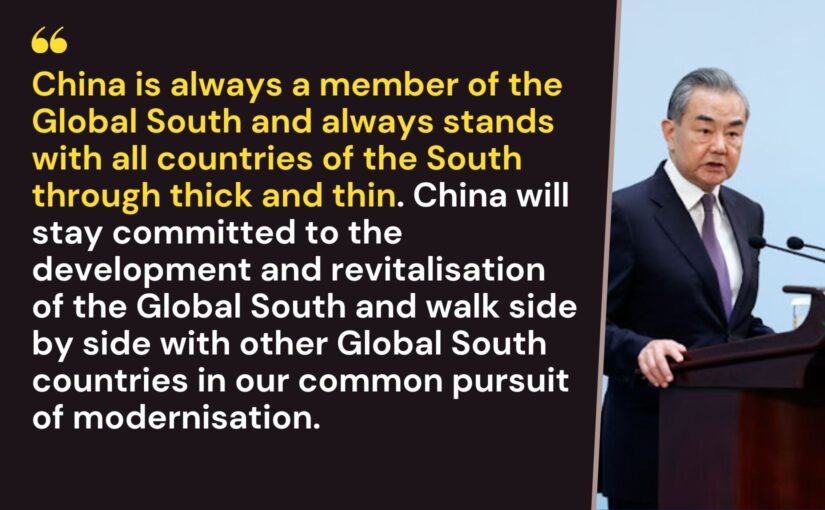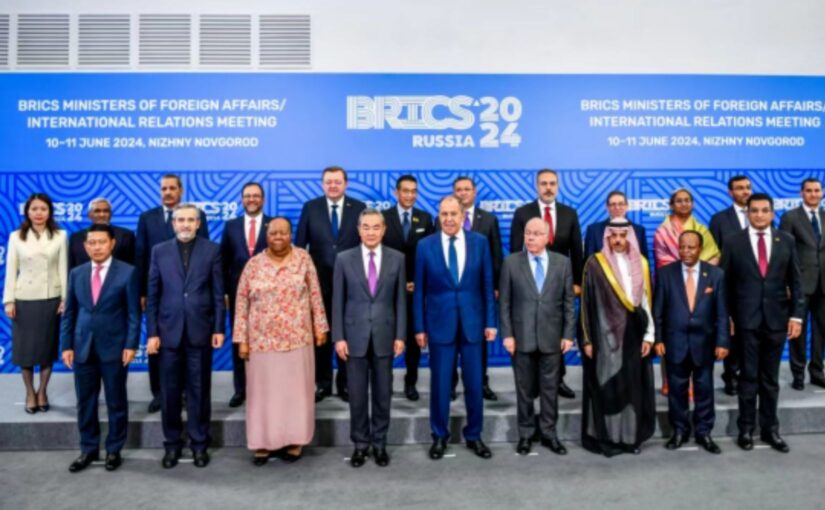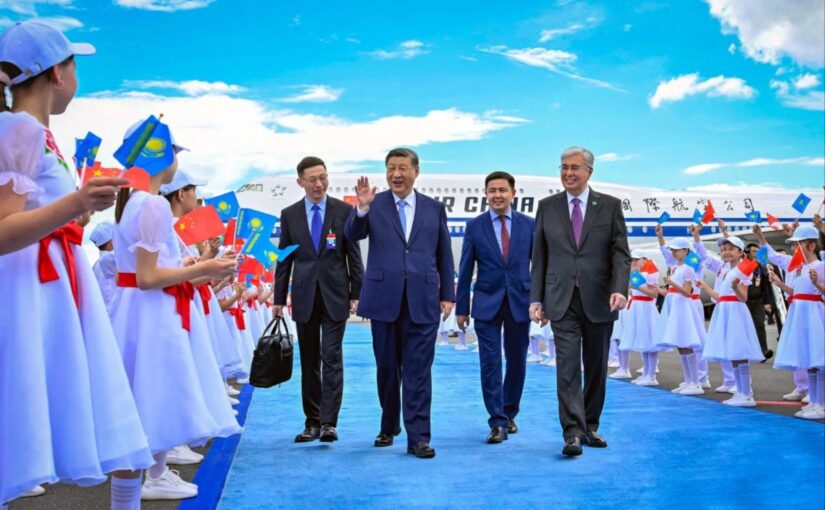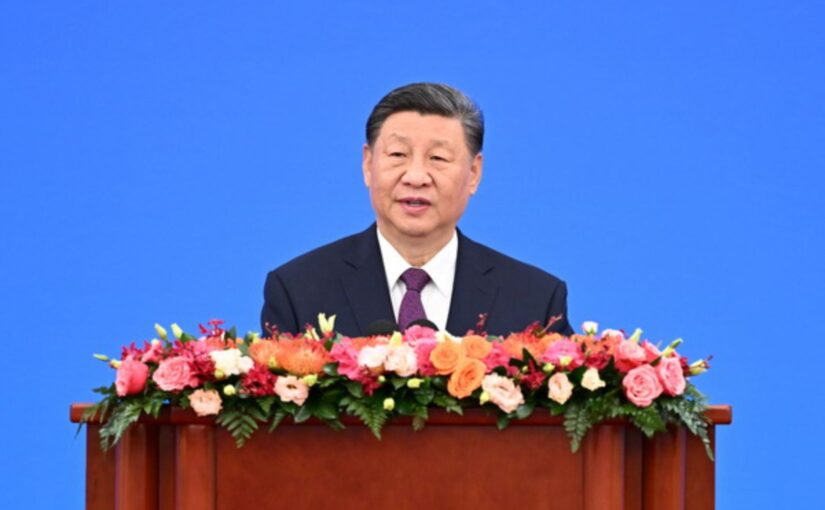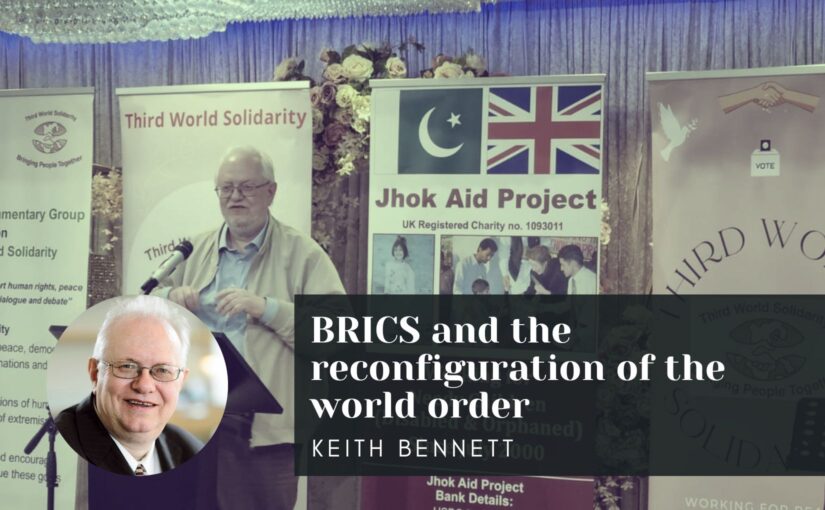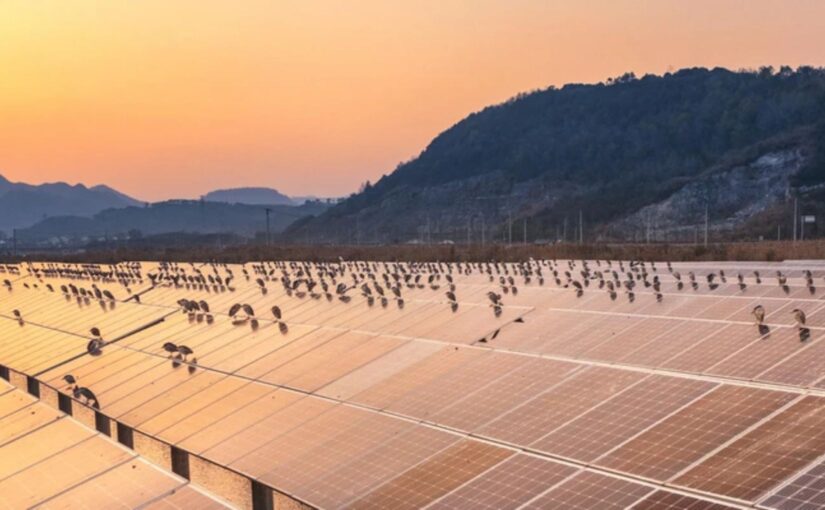The China Institute of International Studies (CIIS), a specialised research institution directly under China’s Ministry of Foreign Affairs, and the Xi Jinping Thought on Diplomacy Studies Centre of CIIS, hosted a launch on November 11 of their latest report, entitled ‘True Multilateralism: Conceptual Development, Core Essence and China’s Practice’.
Held at Beijing’s Diaoyutai State Guest House, the meeting was attended by more than 220 people from around 70 countries, including diplomats from 66 embassies in Beijing and representatives from three international organisations. 18 embassies were represented by their Ambassador or Head of Mission. They were joined by Chinese officials, scholars, researchers and students, along with foreign students studying in China.
Friends of Socialist China Co-Editor Keith Bennett attended and spoke at the conference, representing the Institute of Independence Studies and its Xi Jinping Thought Study Group.
Speakers at the event were:
- Chen Bo: Secretary General, Xi Jinping Thought on Diplomacy Studies Centre; and President, China Institute of International Studies (CIIS)
- Miao Deyu: Assistant Minister, Ministry of Foreign Affairs, China
- Mauricio Hurtado: Ambassador of Chile to China
- Ahmed Mustafa Fahmy: Head, League of Arab States’ China Representative Office
- Oleg Kopylov: Deputy Secretary General, Shanghai Cooperation Organisation (SCO)
- Ren Hongyan: Special Research Fellow, Xi Jinping Thought on Diplomacy Studies Centre
- Chhem Kieth Rethy: Senior Minister, Royal Government of Cambodia; Chairman, Economic, Social and Cultural Council, Cambodia
- Wu Zhicheng: President, Institute of International Strategy, Party School of the Central Committee of the Communist Party of China (National Academy of Governance)
- Keith Bennett: Xi Jinping Thought Study Group, Institute for Independence Studies, UK
- Wang Lei: Deputy Director, Institute of World Economics and Politics, Chinese Academy of Social Sciences
- Gafar Kara Ahmed: Researcher, China-Arab Research Centre on Reform and Development, Shanghai International Studies University; former Sudanese Ambassador to China; and
- Jia Lieying: Dean, School of International Relations & Director, UN Research Centre, Beijing Language and Culture University.
The full text of the Report may be found here.
The following is the text of Keith’s remarks to the meeting.
I welcome the release of your report today. Long ago, Engels, in his preface to ‘The Peasant War in Germany’, stressed the need to constantly “keep in mind that socialism, having become a science, demands the same treatment as every other science – it must be studied.”
This is why the foreign policy of a major socialist country like China, whilst naturally deciding each issue on its merits and specific characteristics, cannot be approached and determined in an ad hoc or impressionistic way but rather on the basis of the most advanced theory, itself based on the summation of long years of practice, which at the present time means the study and application of Xi Jinping Thought on Diplomacy.
President Xi Jinping always reminds us that we are witnessing and experiencing changes unseen in a century. We can see the veracity and profundity of his observation by looking at practically any field of human exploration and endeavour, most recently, for example, the immense opportunities and challenges presented by AI.
But most fundamentally, I believe that the significance of viewing things from this century-long paradigm is that it is just a little over 100 years since socialism graduated from being an ideal to becoming a modern programme of nation building. The concept of changes unseen in a century addresses above all the global ramifications of that historical turning point.
This year we have observed the 70th anniversary of the proclamation of the Five Principles of Peaceful Coexistence, which may be taken as the building blocks and guarantor of true multilateralism and a most fundamental reform of a global governance system hitherto dominated by a handful of oppressor nations, almost exclusively in Western Europe and North America.
The creation of the Soviet state meant that there were now countries in the world with fundamentally different political and social systems. The question therefore arose as to what type of relations should exist between those states and how should the relationship between them be handled. Faced with this question, Lenin formulated the policy of peaceful coexistence.
Some three-and-a-half decades later, it was clear that the existence of states with different social systems was no mere transient phenomenon but rather a long-term historical reality. It therefore fell to the Chinese communists to raise the issue beyond a tactical policy or temporary necessity, but rather to place it on a firm theoretical foundation, to elevate it to the level of science.
Today, in the new era, this issue, while losing none of its original cogency and vitality, has to be approached on a new basis and on a new level. If, seventy years ago, the Five Principles of Peaceful Coexistence gave the socialist countries, and the newly independent countries just embarking on the road of building a new society, freedom to breathe and room to manoeuvre, today we face a qualitatively different situation.
Continue reading The Global South, with China in the forefront, is the key driver towards true multilateralism